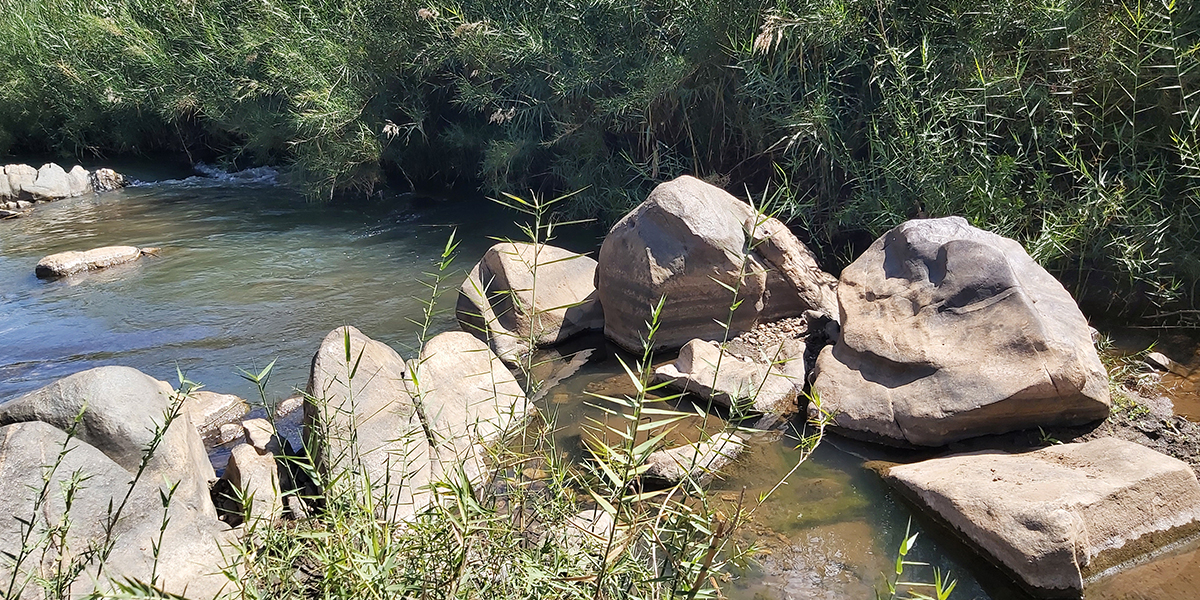Program Overview
MCC’s $345 million Malawi Compact (2013-2018) funded the $20 million Environmental and Natural Resources Management (ENRM) Project, which aimed to reduce disruptions and increase efficiency of hydropower generation by decreasing aquatic weeds and sedimentation in the Shire River Basin. The ENRM and Social and Gender Enhancement Fund (SGEF) activities established a grant facility that provided 11 grants to promote sustainable land management and gender equality, since women are often land-use decision makers.
Key Findings
Environmental & Natural Resources Management (ENRM) Activity
- In well-implemented ENRM grants, project participants continued adoption of many sustainable land management practices because of their financial and environmental benefits.
Social and Gender Enhancement Fund (SGEF) Activity
- Participants from well-implemented SGEF interventions sustained shifts in household and community gender roles for three years after the grants because of the benefits they experienced.
Overall Outcomes and Sustainability
- Among well-implemented grants, most participants are confident in the longer-term adoption of sustainable land management practices and changes in gender roles.
- Benefits such as increased yields, income, and ability to attend to household well-being contribute to sustainability of all maintained activities.
- The grant facility overseeing the grants ultimately did not contribute to achieving the ENRM Project’s objective of reduced weeds and sedimentation. It was not able to make environmental improvements noticeable at the level of the Shire River Basin because only a small fraction of the land and people of the Basin were involved in the grant programs. However, stakeholders think that with time, some of the interventions could still make a difference locally.
Evaluation Questions
This final performance evaluation was designed to answer research questions including whether the ENRM and SGEF Activities:- 1 led to sustained adoption of conservation agriculture and land management practices?
- 2 resulted in sustained changes in gender roles?
- 3 affected stakeholders’ perceptions of the sustainability of grant activities?
- 4 achieved objectives from the grant facility manual and why?
Detailed Findings
These findings build upon the interim evaluation report results published in 2020.Environmental & Natural Resources Management Activity
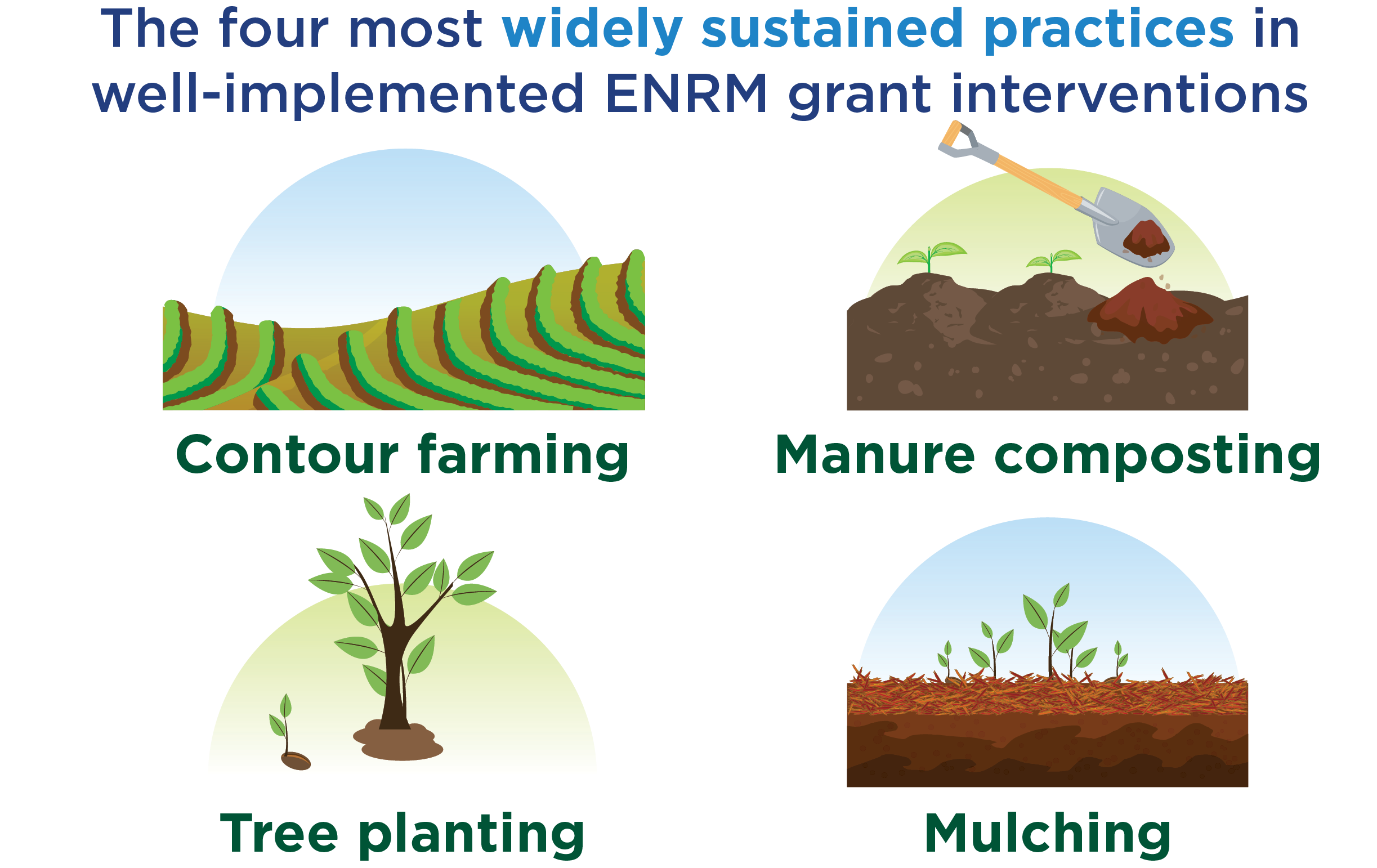
Social and Gender Enhancement Fund Activity
SGEF interventions resulted in widely sustained changes in gender roles in households and communities where grants were well-implemented. Participants are motivated to sustain shifts in gender roles by the benefits they experience, such as fewer disputes among married partners, more equitable division of labor, and increased decision-making power for women around household finances. The ability to sustain changes in gender roles is supported by the improved economic, leadership, and human capital changes resulting from the project. Spillover among nonparticipants is reported for most key activities and changes occurred in gender roles within participating and neighboring villages. Increased leadership opportunities for women was the largest gender role change.Overall Outcomes and Sustainability
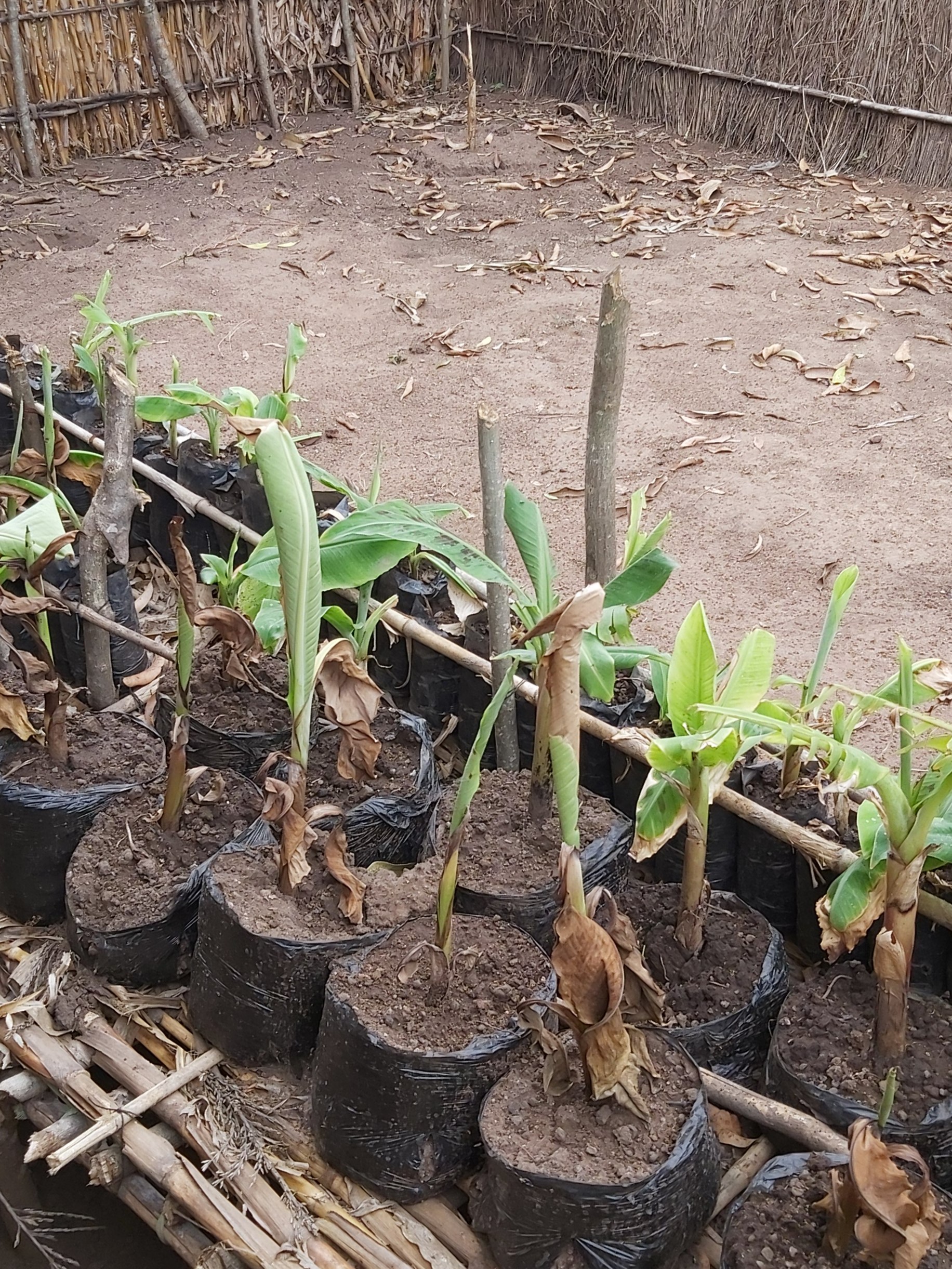
Banana seedings are organized in rows awaiting planting in a village where Catholic Commission for Justice and Peace conducted activities.
The grant facility to oversee the grants was not able to make environmental improvements noticeable at the level of the Shire River Basin because only a fraction of the land and people of the Basin were involved in the grant programs. The grant facility also supported efforts to enhance women’s resource control and decision-making power. As observed in the interim findings, grants were found to be more effective at promoting sustainable land management practices when gender equality activities were integrated alongside environmental practices. These activities helped ENRM activities succeed at the local level.
These findings complement the final evaluation report results of the related Weed and Sediment Management Activity, Environmental Trust Sub-Activity, and overall ENRM Project published in 2022.
MCC Learning
- Integration of gender equality activities into grant interventions enhances the adoption of improved land management practices, especially among women.
- Select and promote land management practices that provide direct benefits to farmers in addition to supporting environmental goals.
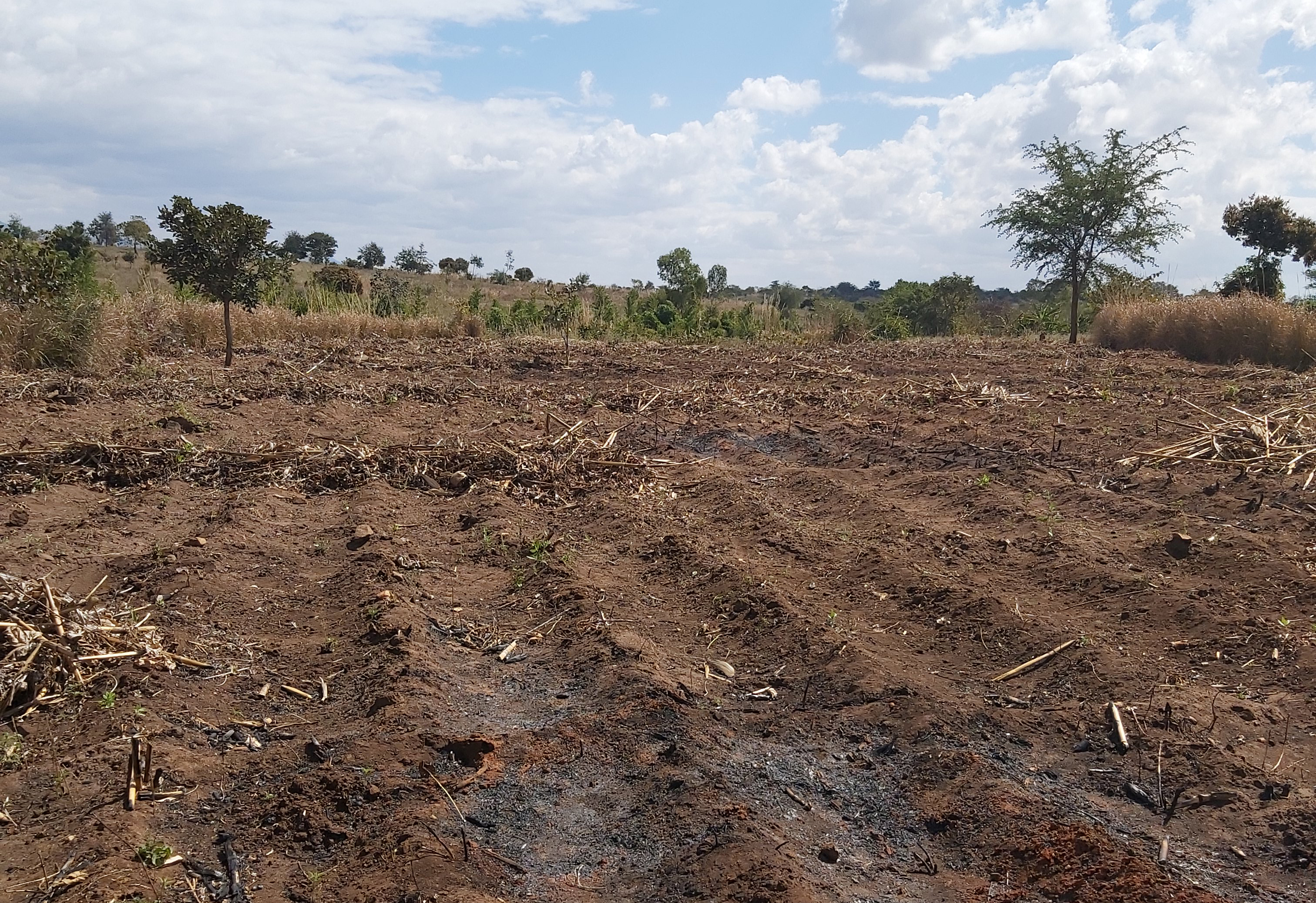
A field with ridge realignment and box ridging is visible in a village where Training Support for Partners conducted activities.
Evaluation Methods
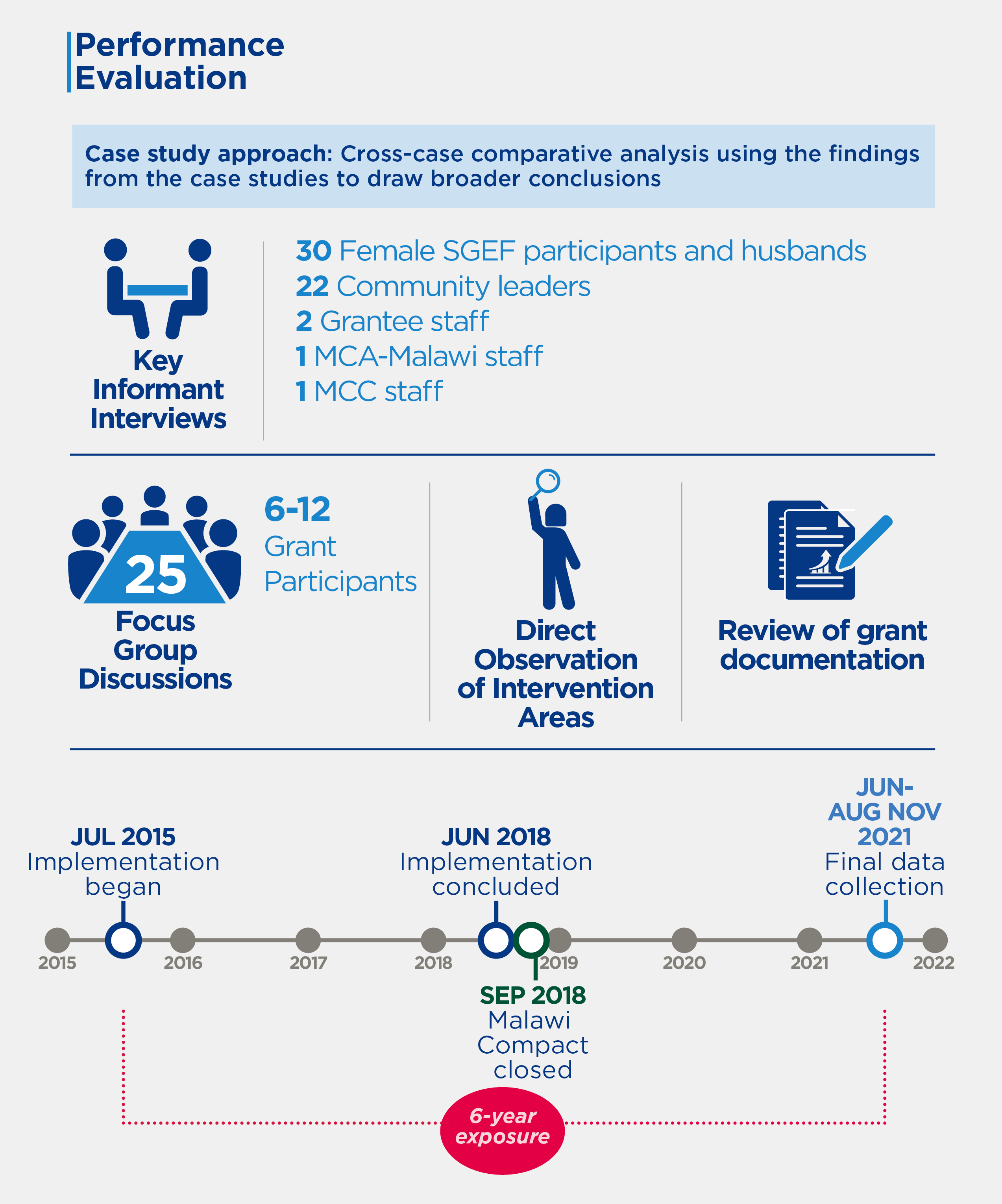
The final evaluation focused on the same five grants evaluated at interim: Catholic Commission for Justice and Peace, Foundation for Irrigation and Sustainable Development, Training Support for Partners, United Purpose, and the Women’s Legal Resources Centre.
A large array of qualitative data was collected, including key informant interviews with 2 grantee staff, 22 community leaders, 30 female SGEF participants and husbands of SGEF participants, former MCA-Malawi staff, and MCC staff. The evaluation team also conducted 25 focus group discussions with grant participants with 6–12 participants per group. In addition, they conducted direct observation of the intervention areas as well as an extensive grant facility document review.
Implementation of the grants began in July 2015 and concluded in June 2018. The Malawi Compact closed in September 2018. Final data collection was conducted from June through August 2021, representing an exposure period of up to 6 years, although exposure varied widely by location and practices implemented.
2022-002-2728


